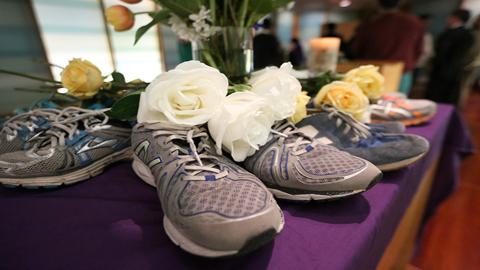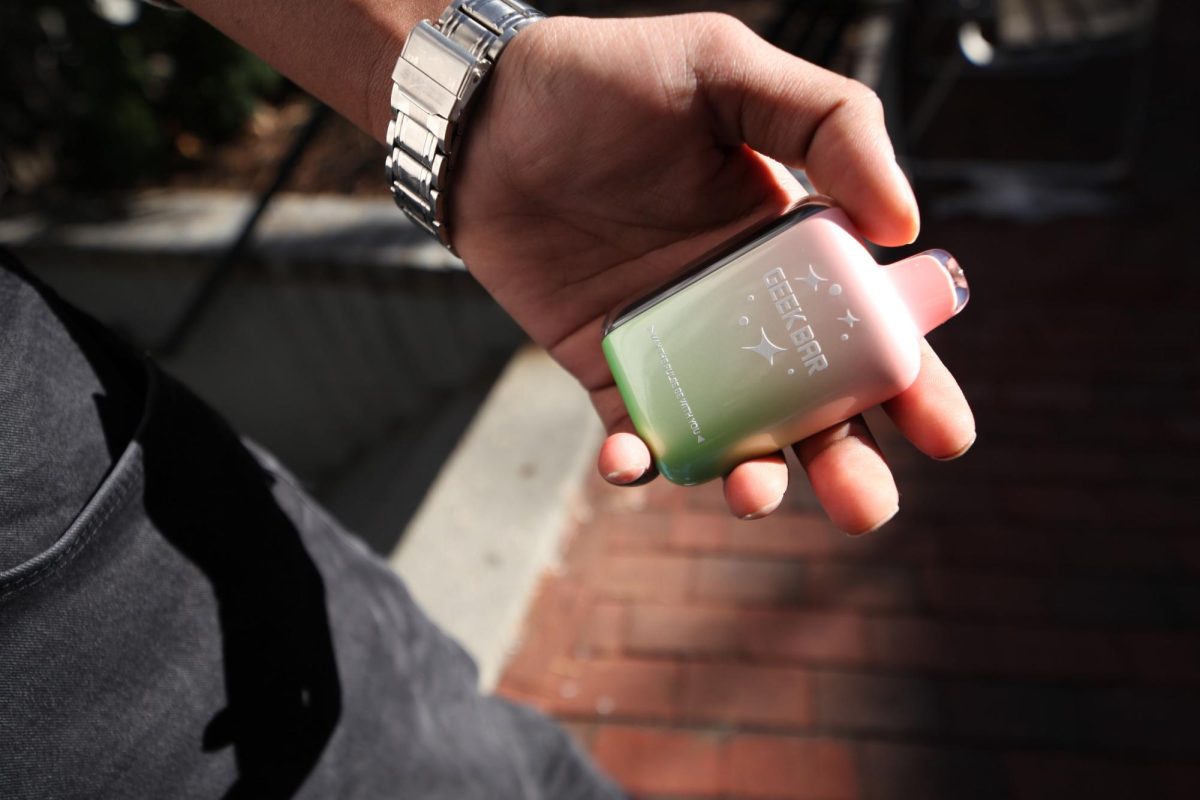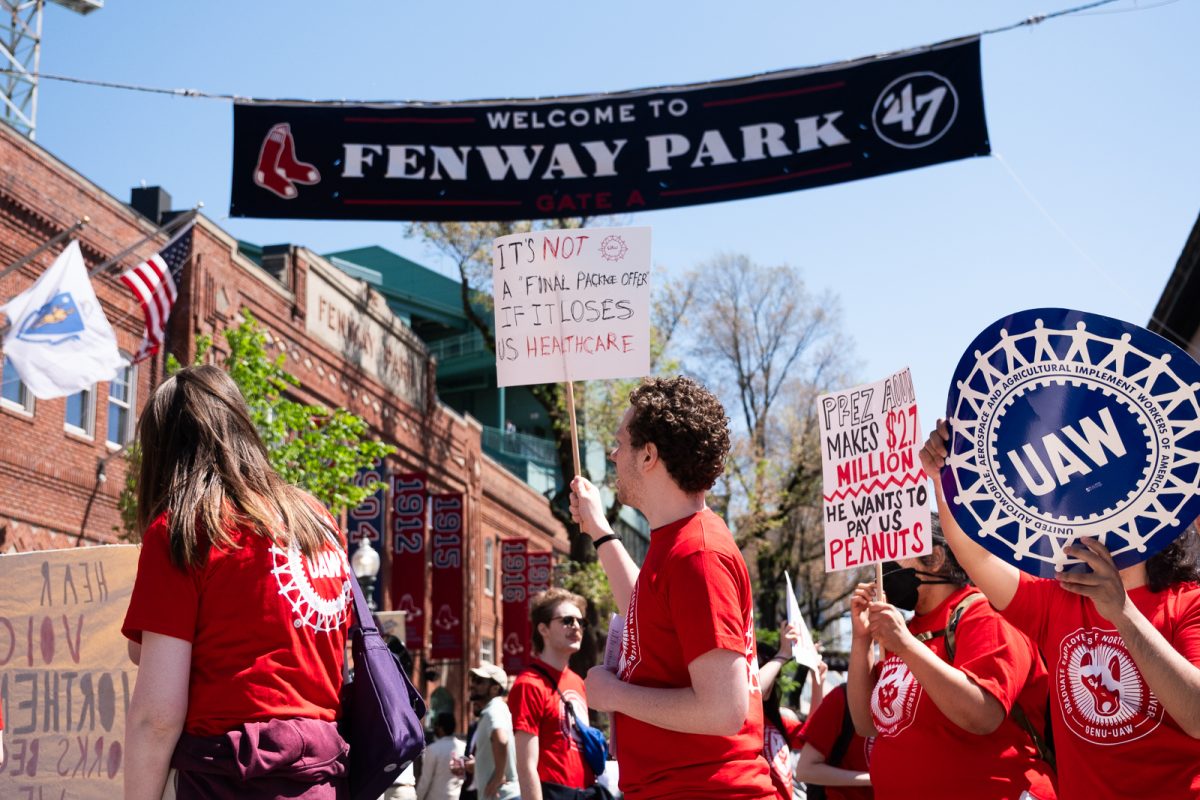By Vanessa Nason, News Correspondent

It was barely seven hours before when Jennifer Pflug, indifferent to the mid-April chill, left her sweatshirt near the starting line. She knew it would be donated to Big Brother and Big Sister.
Her Team Perkins singlet, worn with pride, proved she was no stranger to acts of charitable kindness. She knew, too, that she had supporters flanking checkpoints along the Marathon route: a man from Perkins School for the Blind cheering on his team at mile 19, cousins at the halfway mark and more family and friends at the finish line.
It was April 15, 2013, and the warmth of spring was beginning to win its final fight against the harsh New England winter. Families from Hopkinton to Copley Square rejoiced, held cookouts and celebrated the 117-year-old tradition. Children darted through the crowd, reaching out small hands for high-fives. Perfect strangers cheered for her.
Meanwhile, unknown to the world, two men were hiding in the crowd on Boylston Street. To them, the first runners’ strides began a malevolent countdown, and the 2013 Boston Marathon would end before Pflug ever made it to the finish line.
Bill Winter, a spokesperson from Perkins School for the Blind, was in Newton during the race. Every year, a group of athletes team up and run in support of the school, raising money to further help children that are blind, deaf-blind or visually impaired and may have additional disabilities. Among those athletes was Pflug, a physical therapy student at Northeastern University who had completed a co-op at the school in 2012.
“Working at Perkins has greatly impacted my life,” she said, adding how humbling the experience had been, watching children aged five through 15 fight through their disabilities.
Winter headed home after the last Perkins runner crossed the mile 19 marker. He was driving when he heard the news that shook Boston to its core: reports of the bombing came through his car’s radio.
“My first concern was about our runners,” he said. “It took a while to get confirmation, but, fortunately, everyone was safe. But it was a close thing – one of our runners was within sight of the finish line, actually between the bombs, when they went off.”
Pflug was stopped at mile 25.
Her first indication that something was amiss came a little before that, as police officers on motorcycles veered onto the roadway and spectators on the sidelines began to cry.
“I knew something wasn’t adding up.”
She had reached mile 25 when a woman, a police officer, came up to her on foot.
“What happened?” Pflug asked, angry, at first, for having run so far and being told to stop.
The officer told her that she had to stop and couldn’t go any further. Bombs had gone off at the finish line. People were very badly injured.
“That was all I knew … The whole thing was very terrifying, just not knowing,” Pflug said, recalling panic that coursed through her immediately after the officer told her what had happened.
Her mom, dad and grandmother were waiting at that finish line. Her friends were volunteering there in the medical tents – they were among the first responders.
She took her phone out of the armband it was strapped to. Only moments before she had been using it to listen to music. Now, she quickly sifted through text messages and emails. Cell service was overwhelmed, but through tears she was able to read an email from her mom, informing her that she and her family were safe, and had headed back to Pflug’s apartment.
Pflug didn’t know the specifics of what had happened until she arrived home and watched it unfold on TV. Her family, friends and roommates were waiting for her, safe. But on her way home, she witnessed something first hand that people, one year later, are still telling stories about: the genuine kindness of the Boston community.
Strangers, seeing her in her singlet and running crops with her official number attached to her stomach, came up to her and asked if she was okay. When the bombs went off at the finish line, people did not run from them, as would be expected. They ran into them. They ran into danger, pulled each other out and made sure everyone was okay.

On Tuesday, a vigil was held in the Sacred Space of the Center for Spirituality, Dialogue and Service to remember those affected by last year’s Boston Marathon bombing.
Four runners who ran for the Perkins team last year but were unable to finish, including Pflug, are returning to finish this year.
“I am very proud of all of them,” said Winter.
Four runners refusing to back down in the face of adversity. Four examples reaffirming President Barack Obama’s proud statement, “we will run again.”
Pflug’s story is a snapshot of the stories of the 35,660 people who signed up to run the marathon this year.
“The whole thing happened, I think, to the wrong city,” Pflug said. “Boston’s so strong and so resilient and people care so much about this marathon. It’s gonna be a great moment for Boston to show how tough this city is, and that, you know, we’re still gonna run.”
Photo by Maria Amasanti.















